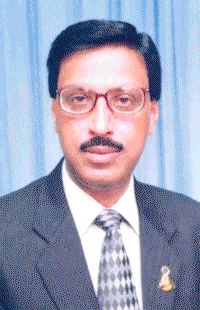- Parent Category: Current Issue
- Hits: 2420
Letter from the Editor-In-Chief
April 2010

The problem in Nagaland and its search for peace is a very dicey matter.
On the one hand, the Khaplang faction of the NSCN [NSCN (K)] is steadfast in its demand for a sovereign Nagaland while the Isak Muivah faction of the NSCN [NSCN (IM)] has stepped down from its prior demand for a separate Naga nation and settled for a call for a ‘Greater Nagaland’. This concept of a ‘Greater Nagaland’, though a compromise, is still a hard pill to swallow and seems highly unlikely as it basically affects the territorial integrity of two other states. The idea behind ‘Greater Nagaland’, to put it in simple words, means an integration of all Naga dominated areas into one single entity. This would be a workable idea but for the fact that the neighbouring states of Assam, Arunachal Pradesh and Manipur are also home to a sizeable Naga population. If the concept of ‘Greater Nagaland’ was to be adhered too, it would mean the re - carving of the boundaries of all four states. Arunachal Pradesh and Assam would lose a sizeable portion of their territory and Manipur would have to relinquish almost half of its territory. The Manipuri stand on the issue is clear as they have very audibly stated, “Over our dead bodies.” As such, this compromise made by the NSCN (IM) is redundant as the stipulations are impossible to meet.
The emergence of the Forum for Naga Reconciliation has comparably brought peace to the region as the two warring factions have signed a peace treaty called the ‘Covenant of Reconciliation’ which has been well appreciated by both the people of Nagaland and the Government of India.
The NSCN (IM) faction’s leaders Th Muivah and Isak Chishi Swu’s recent visit to New Delhi and Dimapur has again brought into the forefront the need for an immediate solution to the Naga problem. True, peace has relatively come to Nagaland because of the ceasefire and understanding between the Naga leaders and the Government of India. The signing of the ‘Covenant of Reconciliation’ has also played a vital role in this regard. However, after all is said and done, the final success of this sensitive issue depends on the leadership skills and political statesmanship. What must be taken into consideration is the fact that the issue has dragged on for decades. One must not forget that the NSCN leaders who are but mortals, are fighting against the Government of India which is an entity. Decades of struggle have taken their toll, the cadre and the people are fast losing patience and these leaders are now visibly ageing whereas the entity of India is impervious to the ravages of time.
Dr.K. K. Jhuhjhunwala
Add a comment
